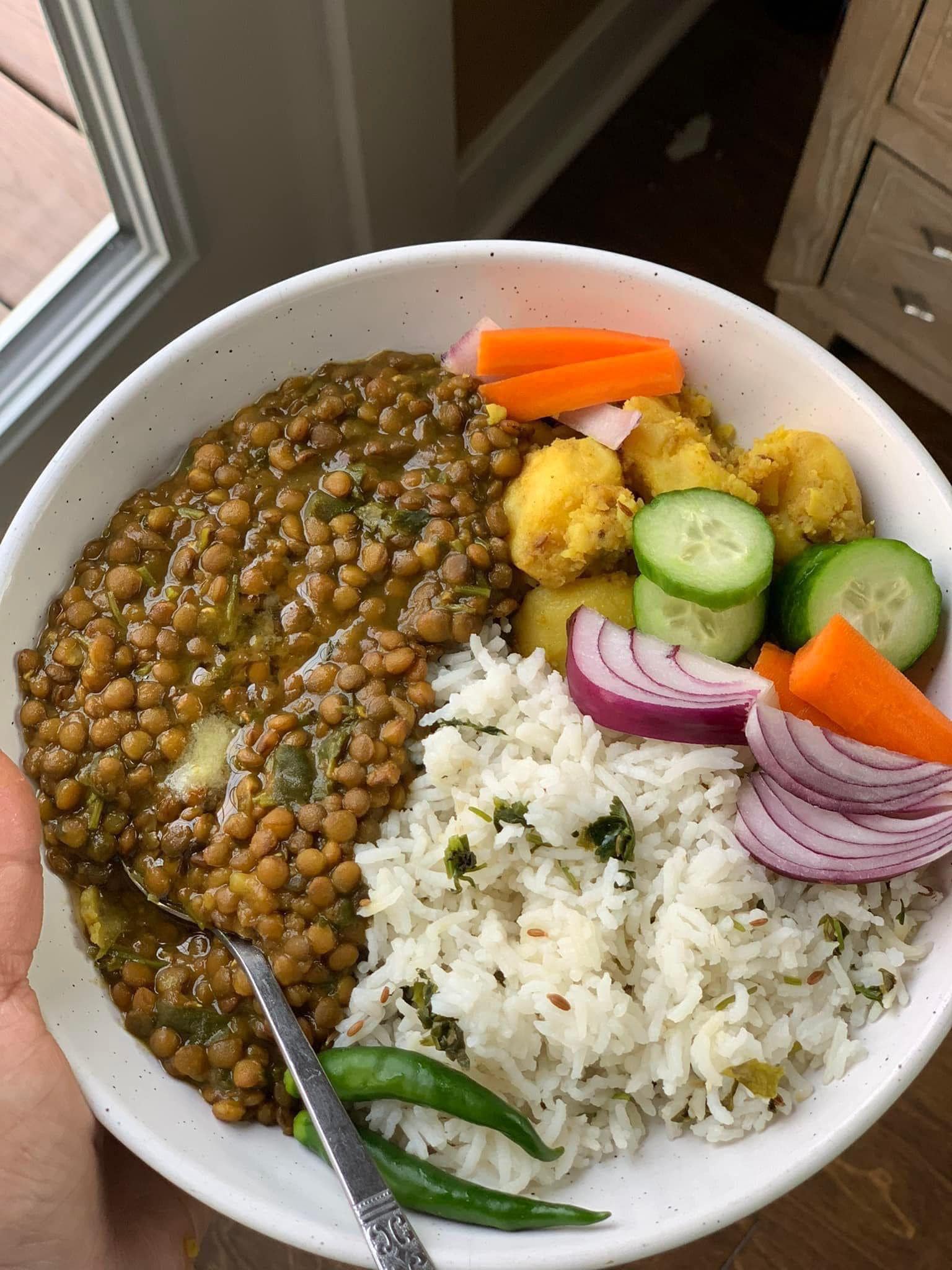The Open Magazine
Delicious Keto Recipes for a healthy lifestyle
Why Masoor Dal Is Prohibited In Hinduism? Benefits Of Eating Masoor Dal. Masoor dal is an important food item in India. It is also known as Moong Dal or Mung Dal. It is made from mung beans and has many nutritional benefits.
What Are The Benefits Of Eating Masoor Dal?
1 There are many reasons why people eat masoor dal.
2 One reason is that it is nutritious.
3 It is rich in protein, carbohydrates, vitamins, minerals, and fiber.
4 It is also low in fat and cholesterol.
5 Another reason is that it is easy to cook.
6 You just need to soak the mung beans overnight and then boil them until soft.
Mung beans are one of the most popular legumes in India. They are known as “the poor man’s pulse” because they are inexpensive and easy to prepare. In fact, they are often used as a staple food in rural areas where there is little access to other foods. They are also very versatile. They can be eaten plain, added to soups, or cooked into curries.
Why Is Masoor Dal Not Considered As A Vegetable?
Masoor dal belongs to the legume family. Legumes are vegetables that contain high levels of dietary fiber. They are also rich in nutrients such as iron, calcium, magnesium, phosphorus, potassium, zinc, copper, manganese, and folate. However, some people do not consider masoor dal as a vegetable because it does not have any taste.
The word “dal” means lentil in Hindi. In India, there are many varieties of deals available. Some of them include urad dal, moong dal, chana dal, red gram dal, green gram dal, black gram dal, and masoor dal. This dal is used in different dishes. For example, urad dal is used in making idli, while moong dal is used in preparing Pakoda.
There are two main reasons why masoor dal is prohibited in Hinduism. First, it contains a lot of iron which is considered harmful for pregnant women. Second, it has a bitter taste. Therefore, people avoid eating masoor dal because of its bitterness. However, if you want to eat masoor dal, then you should use it in combination with other foods such as rice, roti, or bread.
When Should You Eat Masoor Dal? Why Masoor Dal Is Prohibited
There are several reasons why masoor dal should be included in your diet.
1 First, it contains protein, carbohydrates, vitamins, minerals, and dietary fiber.
2 Second, it helps lower cholesterol levels.
3 Third, it provides energy and is good for digestion.
4 Fourth, it improves blood circulation and reduces the risk of cardiovascular diseases.
5 Fifth, it helps maintain healthy bones and teeth.
6 Sixth, it prevents constipation.
7 Seventh, it helps reduce the risk of certain cancers.
8 Eighth, it promotes weight loss.
9 Ninth, it lowers the risk of type 2 diabetes.
10 Tenth, it helps prevent obesity.
11 Eleventh, it helps improve immunity.
12 Twelfth, it helps control blood pressure.
13 Thirteenth, it helps treat kidney stones.
14 Fourteenth, it helps prevent osteoporosis.
15 Fifteenth, it helps prevent Alzheimer’s disease.
16 Sixteenth, it helps prevent cataracts.
17 Seventeenth, it helps prevent gout.
18 Eighteenth, it helps prevent gallstones.
19 Nineteenth, it helps prevent rheumatoid arthritis.
20 Twentieth, it helps prevent asthma.
21 Twenty-first,
Why Masoor Dal Is Prohibited
Why Masoor Dal Is Prohibited. The benefits of eating masoor dal are endless. In fact, there are many health benefits associated with eating this nutritious legume. For example, it helps lower cholesterol, which is important because high cholesterol levels increase the risk of heart disease. It also helps lower the risk of cancer.
It helps keep bones strong and healthy. Masoor Dal helps prevent constipation. It helps prevent obesity. Masoor Dal helps prevent type 2 diabetes. It helps prevent Alzheimer’s disease. It helps prevent cataracts and gout. Masoor Dal helps prevent osteoporotic fractures. It helps prevent gallstones. Masoor Dal helps prevent rheumatoid arthritis.
It helps prevent asthma. Masoor Dal helps prevent allergies. It helps prevent kidney stones. It helps prevent urinary tract infections. Masoor Dal helps prevent urinary incontinence. Masoor Dal helps prevent urinary calculi. It helps prevent urinary bladder
What Are Some Recipes For Masoor Dal?
You can make masoor dal at home by soaking the dried mung beans overnight. Then drain them and grind them into a fine powder using a blender or coffee grinder. Add water and cook until the mixture thickens. Serve with rice or roti (Indian flatbread).
The word masoor means lentils in Hindi. In India, there are many varieties of lentil dishes such as chana masala, aloo gobi, and bhatoora. However, the most popular dish is the one prepared from mung beans called masoor dal. It is considered sacred because it is believed to be the first food eaten by man after he emerged from the womb.
Can I Have Masoor Dal Every day?
No, you cannot eat masoor dal every day because it contains high levels of oxalic acid. Oxalic acid is found naturally in some foods, such as spinach, rhubarb, and strawberries. However, when consumed in large amounts, oxalic acid can cause kidney stones.
The main reason why people avoid eating masoor dal is due to the fact that it contains high levels of calcium oxalate. Calcium oxalate is a compound that forms crystals in the body. When too much calcium oxalate builds up in the kidneys, it can lead to kidney stones.
In addition, consuming too many foods that contain calcium oxalate can increase the risk of developing kidney stones.
